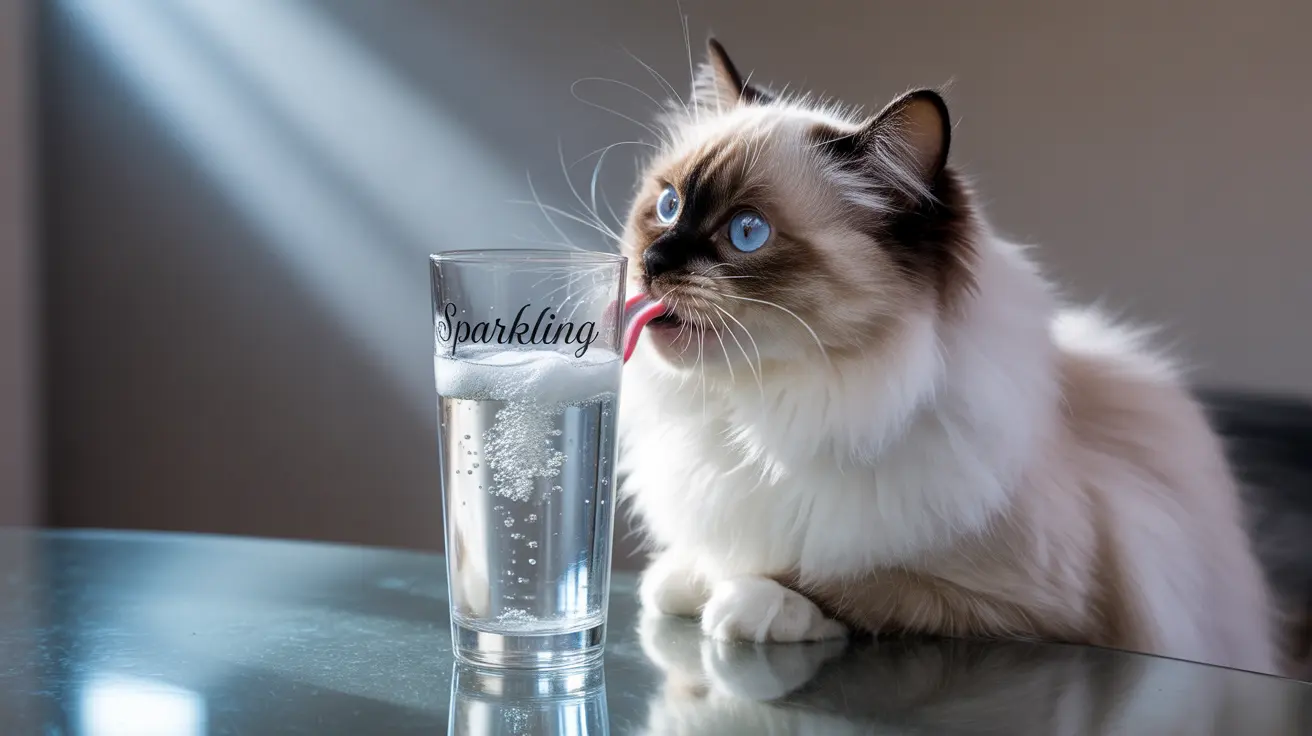Understanding Sparkling Water and Its Effects on Cats
Sparkling water is essentially regular water infused with carbon dioxide gas, creating carbonation. When consumed, these bubbles release carbonic acid, which gives the water its characteristic fizzy sensation. For cats, whose digestive systems are more sensitive than humans, this carbonation can have varying effects.
Unlike regular water, sparkling water has a slightly acidic pH level (typically between 3-4), which can potentially impact your cat's dental health and digestive system if consumed regularly.
Safety Guidelines for Offering Sparkling Water to Cats
When it comes to sharing sparkling water with your cat, following these essential guidelines can help prevent potential health issues:
- Only offer plain, unflavored sparkling water
- Ensure no additional ingredients or sweeteners are present
- Limit portions to small amounts
- Monitor your cat for any adverse reactions
- Never replace regular water with sparkling water
Potential Benefits and Risks
Possible Benefits
Some cats may be attracted to sparkling water because:
- The bubbles mimic moving water, which cats naturally prefer
- It can provide temporary entertainment or enrichment
- May encourage reluctant drinkers to increase fluid intake
Important Risks to Consider
Several potential risks should be carefully weighed:
- Dental erosion from repeated exposure to carbonic acid
- Digestive discomfort or bloating
- Potential stomach upset
- Risk of dehydration if cats prefer it to regular water
Best Practices for Cat Hydration
Instead of relying on sparkling water, consider these veterinarian-recommended approaches to keeping your cat properly hydrated:
- Provide multiple fresh water stations throughout your home
- Invest in a pet water fountain
- Clean water bowls regularly
- Monitor your cat's daily water intake
- Consider wet food to increase moisture consumption
When to Consult a Veterinarian
Seek professional veterinary advice if you notice:
- Changes in drinking habits
- Signs of dehydration
- Digestive issues after consuming sparkling water
- Decreased appetite or lethargy
- Dental problems or sensitivity
Frequently Asked Questions
Can cats safely drink plain sparkling water without added flavors or sugars?
Yes, cats can safely drink plain sparkling water in small amounts, provided it contains no additional ingredients. However, it should never be their primary source of hydration.
What are the potential health risks of giving my cat sparkling water regularly?
Regular consumption of sparkling water can lead to dental erosion, digestive discomfort, bloating, and potential stomach irritation. It may also discourage proper hydration from regular water sources.
How much sparkling water is safe to give my cat without causing digestive discomfort?
Only offer very small amounts occasionally - a few laps at most. Watch for signs of discomfort and discontinue if any adverse reactions occur.
Why do some cats seem interested in drinking sparkling or carbonated water?
Cats are often attracted to moving water, and the bubbles in sparkling water can trigger this natural interest. The novelty and movement of the carbonation may appear similar to running water, which cats instinctively prefer.
Should sparkling water ever replace regular water in my cat's diet?
No, sparkling water should never replace regular fresh water in your cat's diet. It should only be offered as an occasional treat, if at all, while maintaining constant access to clean, fresh water.
Remember, while sparkling water isn't toxic to cats, it's best to prioritize regular fresh water for optimal feline health and hydration. If you have concerns about your cat's drinking habits, always consult with your veterinarian for personalized advice.






